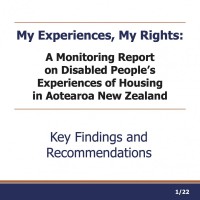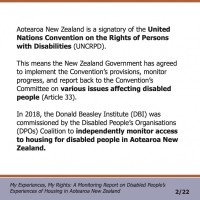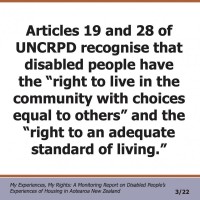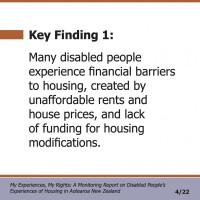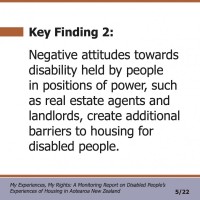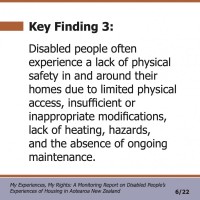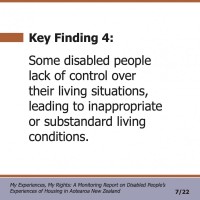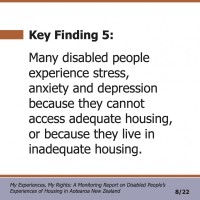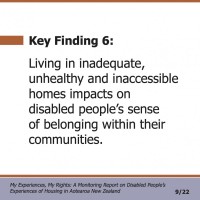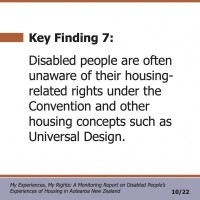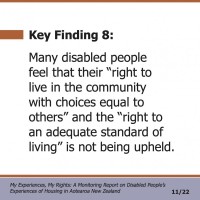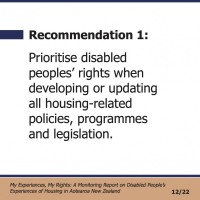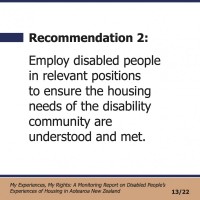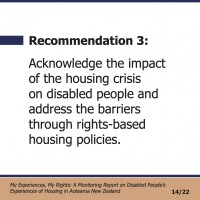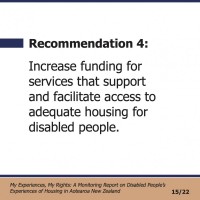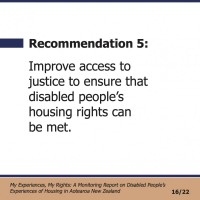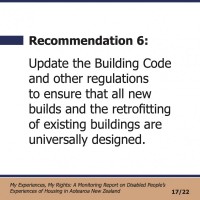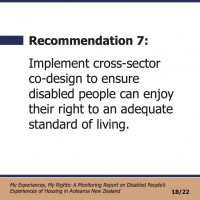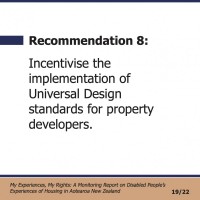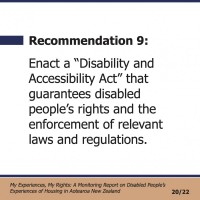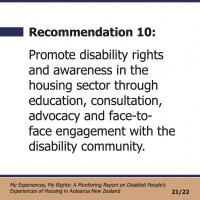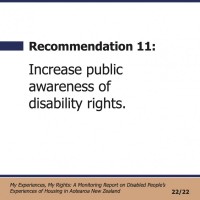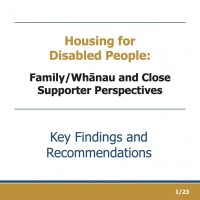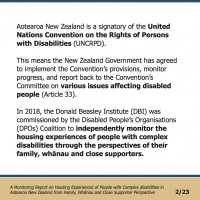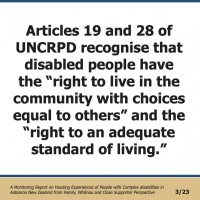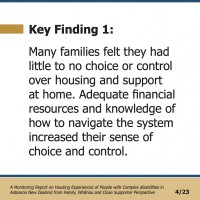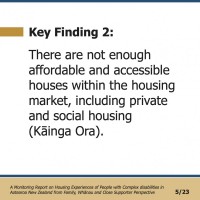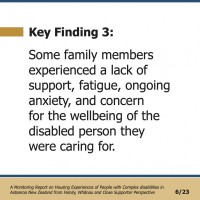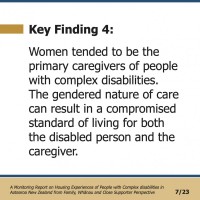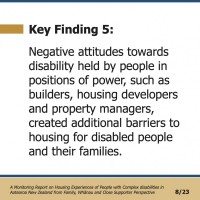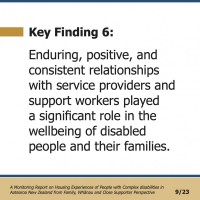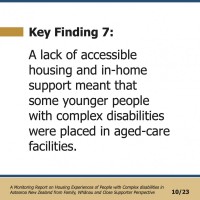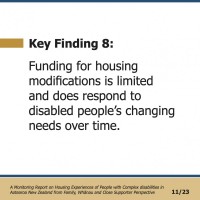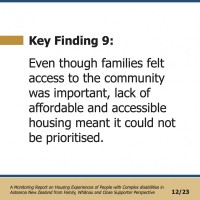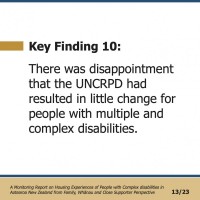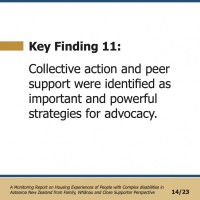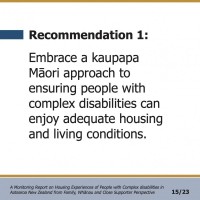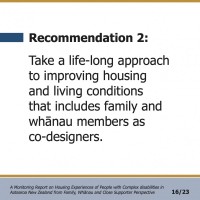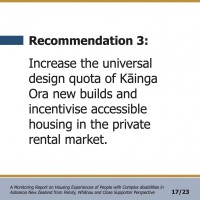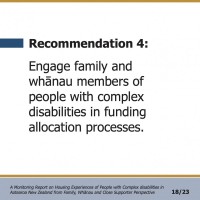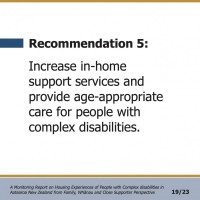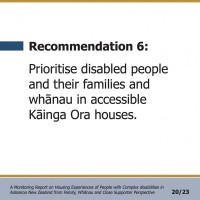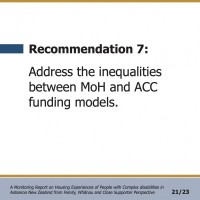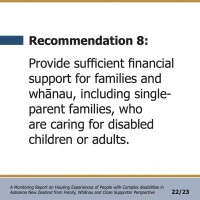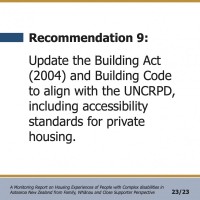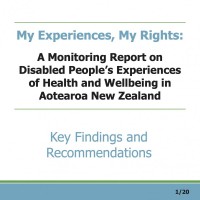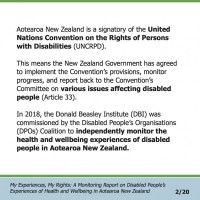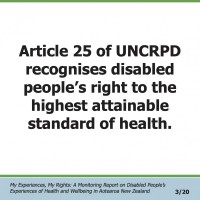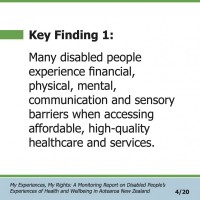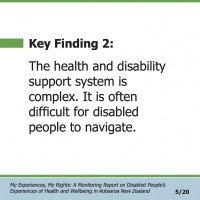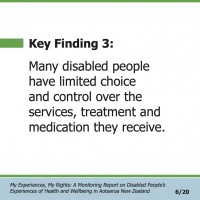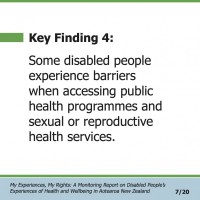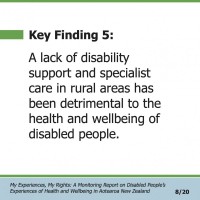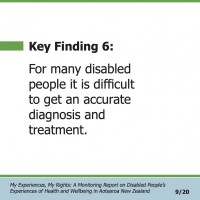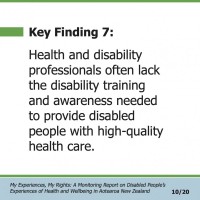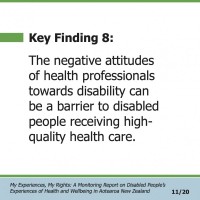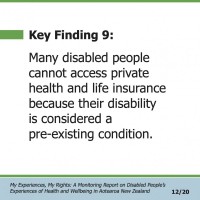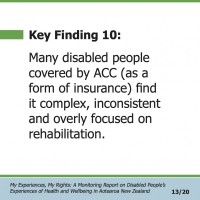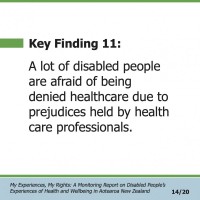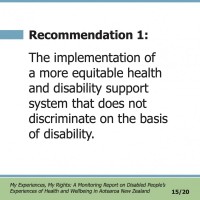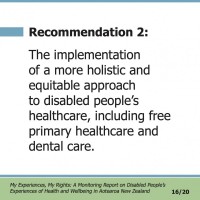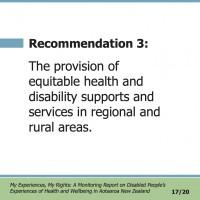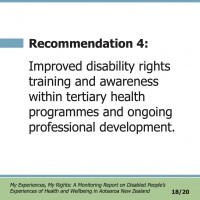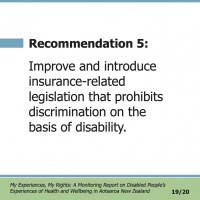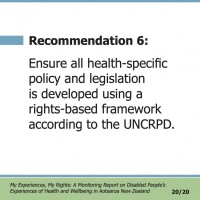What is Disabled Person-Led Monitoring Research?
The United Nations Convention on the Rights of Persons with Disabilities is an international agreement. It sets out what governments must do to make sure disabled people have the same rights as everybody else. You can read the Convention here.
In 2008, the Government of New Zealand signed the Convention, indicating its commitment to making disability rights real in Aotearoa New Zealand. More than a decade on, it is important to understand if, and how well, this is happening. Monitoring research is how we do this.
In 2018, the Donald Beasley Institute was appointed by the Disabled Persons Organisation Coalition (DPO Coalition) and the New Zealand Government as the research partner to carry out the monitoring research.
Over six years we will conduct inclusive and accessible research on behalf of the DPO Coalition that enables disabled people to share their experiences of human rights in Aotearoa New Zealand. We will also be monitoring the progressive realisation of the Convention at a systemic level. This means investigating systems and policies that have resulted in the violation of disabled people's rights.
In 2019, we began by interviewing disabled people and their families/whānau about their experiences of housing (2018 - 2020) and then health and wellbeing (2020-2021). These reports are expected to be launched in 2022. We have now started the planning for the next cycle of monitoring, where we are investigating disabled people's right to supports and services under the new Ministry for Disabled People.
It is important to know that this research is led entirely by disabled people. From the Project Lead and Research Assistant, to Monitors, transcribers, and participants, this project embodies the disability rights slogan 'nothing about us, without us' at every stage of the research process.
We will be using this webpage to publish updated information, including advertisements, calls to participate, research documents and forms, the final reports, as well as all of the content in accessible formats (audio, Easy Read, large print, New Zealand Sign Language and te Reo Māori).
My Experiences, My Rights: Supports and Services (2022-2024)
In 2022, we began the third cycle of the Disabled Person-Led Monitoring of the UNCRPD in Aotearoa New Zealand, investigating disabled people's right to supports and services.
In Aotearoa New Zealand, the Government provides disabled people with disability supports and services that ensure their human rights can be realised in a full and meaningful way. But sometimes disabled people don’t receive the supports and services they need. And sometimes they miss out altogether.
In this cycle of monitoring, we talked to disabled people with a range of different support and service experiences, as well as family, whānau, aiga and close supporters. We wanted to know what disabled people think and feel about existing supports and services, changes to the disability support system, Whaikaha - the new Ministry of Disabled People, and how these changes meet disabled people’s rights under the UNCRPD.
This research project was conducted in three parts. In the first part, we spoke with disability community leaders who were involved in the establishment of Whaikaha - Ministry of Disabled People and/or the national roll out of Enabling Good Lives (EGL).
In the final part of the research, we asked disabled people, family, whānau, aiga and close supporters from around Aotearoa to answer a questionnaire about their supports and services experiences.
- Report 1 - Whaikaha l Ministry of Disabled People
- Report 2 - Consultation
- Report 3 - Disability Supports and Services
- Report 4 - Enabling Good Lives
- Report 5 - Recommendations
These reports will be released in phases throughout 2025.
Full Report
Summary
My Experiences, My Rights: Disability Supports and Services - Report 1 - Whaikaha l Ministry of Disabled People (Easy Read, Word)
My Experiences, My Rights: Disability Supports and Services - Report 1 - Whaikaha l Ministry of Disabled People (Easy Read, PDF)
My Experiences, My Rights: Disability Supports and Services - Report 1 - Whaikaha l Ministry of Disabled People (Braille on request)
Full Report
Summary
My Experiences, My Rights: Disability Supports and Services - Report 2 - Consultation and Engagement (Easy Read, Word)
My Experiences, My Rights: Disability Supports and Services - Report 2 - Consultation and Engagement (Easy Read, PDF)
My Experiences, My Rights: Disability Supports and Services - Report 2 - Consultation and Engagement (Braille on request)
My Experiences, My Rights: Disability Supports and Services - Report 2 - Consultation and Engagement (Audio)
Disabled Person-Led Monitoring Reports
Below are three monitoring reports from the previous monitoring cycles (2018 - 2022).
Long Report:
- My Experiences My Rights A Monitoring Report on Disabled Person's Experience of Housing in Aotearoa New Zealand (PDF)
- Ōku Wheako, Ōku Mōtika: He Pūroko Aroturuki i kā Wheako Noho Whare o te Huka Hauā o Aotearoa (Te Reo Māori)
- My Experiences My Rights A Monitoring Report on Disabled Person's Experience of Housing in Aotearoa New Zealand (Plain Text)
- My Experiences My Rights A Monitoring Report on Disabled Person's Experience of Housing in Aotearoa New Zealand (Large Print)
- My Experiences My Rights A Monitoring Report on Disabled Person's Experience of Housing in Aotearoa New Zealand (Braille, please contact the DBI)
Executive Summary:
- My Experiences My Rights A Monitoring Report on Disabled Person's Experience of Housing in Aotearoa New Zealand (Easy Read)
- My Experiences My Rights A Monitoring Report on Disabled Person's Experience of Housing in Aotearoa New Zealand (NZSL)
- My Experiences My Rights A Monitoring Report on Disabled Person's Experience of Housing in Aotearoa New Zealand (Audio)
1 - Title
2 - Background
3 - Methodology
4 - Findings
5 - Discussion
6 - Final comments
7 - Producer's note
Key Findings:
- Image descriptions
- Tiles:
Long Report:
- Housing for Disabled People: Family, Whānau and Close Supporter Perspectives (PDF)
- Te Noho Whare mō te Huka Hauā - Kā Tirohaka o Kā Whānau me Kā Kaiāwhina Tata (Te Reo Māori)
- Housing for Disabled People: Family, Whānau and Close Supporter Perspectives (Plain Text)
- Housing for Disabled People: Family, Whānau and Close Supporter Perspectives (Large Print)
Executive Summary:
- Housing for Disabled People: Family, Whānau and Close Supporter Perspectives - Executive Summary (Easy Read)
- Disabled People: Family, Whānau and Close Supporter Perspectives - Executive Summary (NZSL)
- Housing for Disabled People: Family, Whānau and Close Supporter Perspectives - Executive Summary (Braille, please contact the DBI)
- Housing for Disabled People: Family, Whānau and Close Supporter Perspectives - Executive Summary (Audio)
1 - Title and producer's note
2 - Introduction and background
3 - Methodology
4 - Findings
5 - Choice and control
6 - Access
7 - Physical and psychosocial wellbeing
8 - Relationships
9 - Advocacy and awareness
10 - Discussion
11 - Gratitude and compromise
12 - Similarities and differences to the wider report
13 - Best practice and recommendations
14 - Strengths and limitations
15 - Conclusion
16 - Producer's note
Key Findings:
- Image descriptions
- Tiles:
Long Report:
- My Experiences, My Rights: A Monitoring Report on Disabled People's Experience of Health and Wellbeing in Aotearoa New Zealand - Long Report (PDF)
- My Experiences, My Rights: A Monitoring Report on Disabled People's Experience of Health and Wellbeing in Aotearoa New Zealand - Long Report (Plain Text)
- My Experiences, My Rights: A Monitoring Report on Disabled People's Experience of Health and Wellbeing in Aotearoa New Zealand - Long Report (Large Print)
Short Report:
- My Experiences, My Rights: A Monitoring Report on Disabled People's Experience of Health and Wellbeing in Aotearoa New Zealand - Short Report (PDF)
- My Experiences, My Rights: A Monitoring Report on Disabled People's Experience of Health and Wellbeing in Aotearoa New Zealand - Short Report (Plain text)
- My Experiences, My Rights: A Monitoring Report on Disabled People's Experience of Health and Wellbeing in Aotearoa New Zealand - Short Report (Large Print)
- Ōku Wheako, Ōku Mōtika- He Pūroko Aroturuki ki te Wheako Hauora, ki te Wheako Oraka o te Huka Hauā ki Aotearoa (Pūroko Aroturuki Whakarāpopoto)
- My Experiences, My Rights: A Monitoring Report on Disabled People's Experience of Health and Wellbeing in Aotearoa New Zealand - Short Report (Easy Read)
- My Experiences, My Rights: A Monitoring Report on Disabled People's Experience of Health and Wellbeing in Aotearoa New Zealand - Short Report (NZSL)
- My Experiences, My Rights: A Monitoring Report on Disabled People's Experience of Health and Wellbeing in Aotearoa New Zealand - Short Report (Braille, please contact the DBI)
- My Experiences, My Rights: A Monitoring Report on Disabled People's Experience of Health and Wellbeing in Aotearoa New Zealand - Short Report (Audio)
0 - Title and producer's note
1 - Foreword
2 - Introduction
3 - Methodology
4 - Findings
5 - Discussion
6 - Recommendations
7 - Conclusion
8 - References
Key Findings:
- Image descriptions
- Tiles:
Contact
Twitter: DBI_tweet
Project Lead
Dr Robbie Francis Watene
027 529 2114
rfrancis@donaldbeasley.org.nz
Junior Research Fellow
Umi Asaka
021 109 3218
uasaka@donaldbeasley.org.nz
Project Artwork by Eve McCoy
